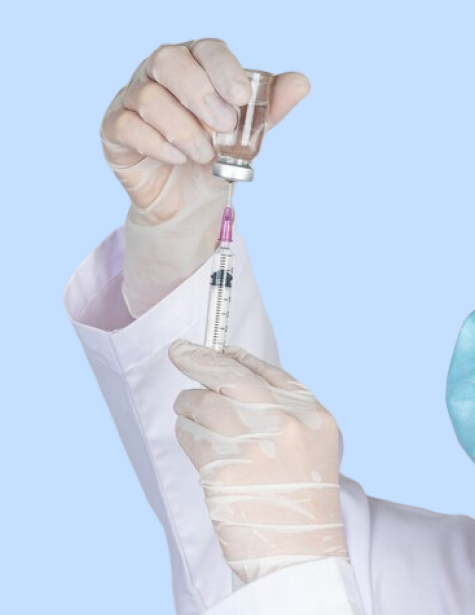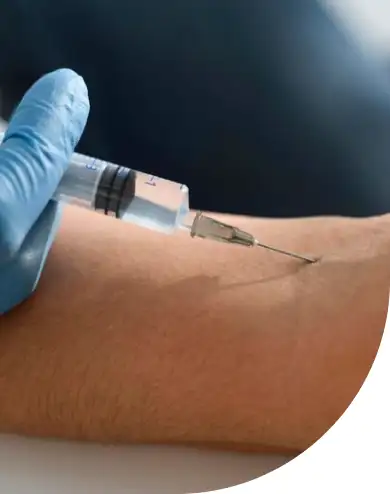What is an Injection for
Tendonitis?
Injections for tendonitis help reduce pain and inflammation in the affected tendon, facilitating healing and restoring function. Joint injections for Achilles tendonitis in London include corticosteroid injections, which help reduce inflammation, and PRP injections, which stimulate tissue regeneration and repair.

2. Limited mobility: Tendinitis can lead to decreased motion and more stiffness in the affected joint. If conservative treatments fail to improve mobility, injections may be considered to restore function.
3. Failed conservative treatment: If conservative treatments such as rest, ice, physical therapy and non-steroidal anti-inflammatory drugs (NSAIDs) fail to provide relief, injections may be recommended as an alternative intervention.
What do Injections for Tendonitis treat?

Tendon inflammation :
Injections for tendonitis primarily target inflammation in the affected tendon, helping to reduce pain and swelling.
Promoting healing :
By delivering medication directly to the area of injury, injections stimulate healing and tissue repair, allowing the tendon to regain strength and function.
